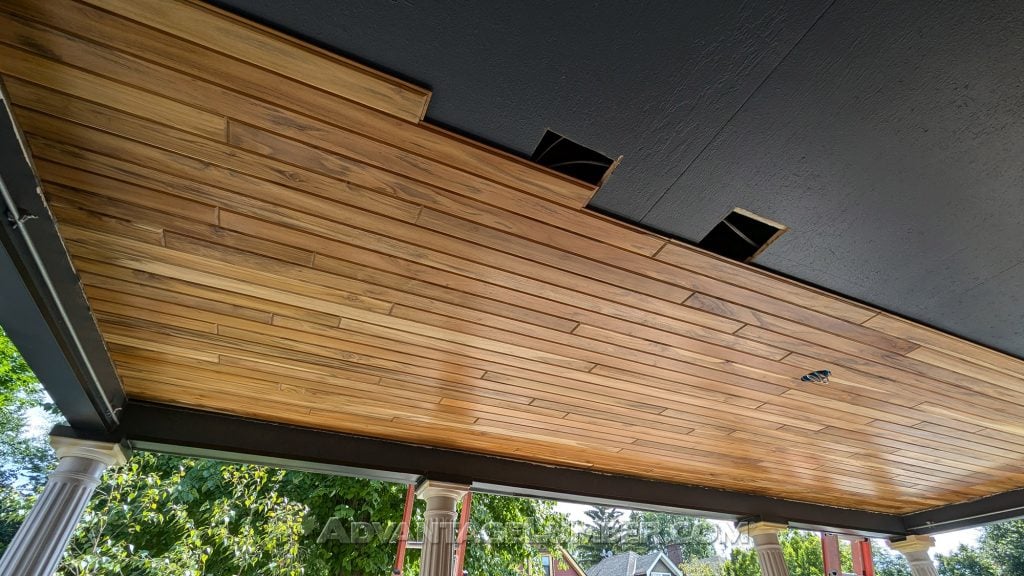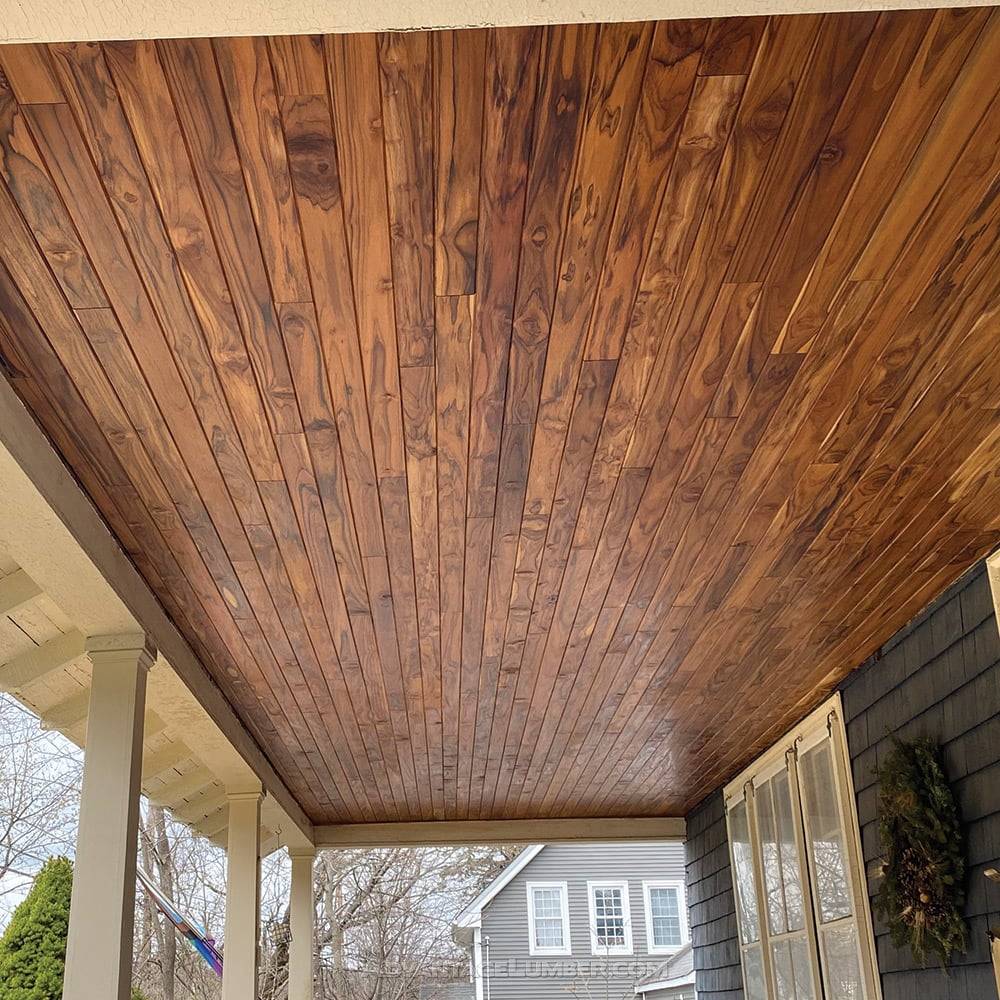When it comes to selecting the perfect material for your porch ceiling, the choices can be overwhelming. While cedar and pine have long been popular options, plantation teak is gaining recognition for its superior qualities. Known for its luxurious appearance, durability, and sustainability, plantation teak from AdvantageLumber.com is a top contender for homeowners seeking an elegant and long-lasting solution.
In this blog post, we will explore the benefits of plantation teak tongue and groove porch ceilings and compare them to cedar and pine to help you make an informed decision.
Plantation Teak: A Sustainable Choice
Before diving into comparisons, it’s essential to understand what plantation teak is. Unlike old-growth teak, plantation teak is harvested from managed plantations, ensuring that the supply remains sustainable and environmentally friendly. This sustainable approach allows you to enjoy the beauty and benefits of teak without contributing to deforestation.
The Benefits of Plantation Teak Tongue and Groove Porch Ceilings

1. Elegant Aesthetic Appeal
Plantation teak offers a timeless beauty that elevates the appearance of any porch.
- Rich Color and Grain: Teak’s golden-brown tones and uniform grain pattern provide a luxurious and inviting look, suitable for various architectural styles.
- Natural Elegance: The tight grain and warm hues make plantation teak a standout choice, creating an ambiance of sophistication and warmth.
2. Exceptional Durability
Teak is renowned for its remarkable durability, making it ideal for outdoor applications.
- Weather Resistance: Teak naturally contains oils and resins that make it highly resistant to moisture, rot, and insect damage, ensuring a long lifespan even in harsh climates.
- Longevity: Plantation teak can last for decades, maintaining its beauty and structural integrity over time.
3. Low Maintenance Requirements
Plantation teak requires less maintenance compared to other wood species, thanks to its natural properties.
- Natural Oils: The inherent oils in teak minimize the need for frequent sealing or staining, keeping maintenance efforts to a minimum.
- Prefinished: The Tongue and Groove Teak ceiling planks from AdvantageLumber.com are available prefinished so they will not need to be finished after installation. The factory finish is much stronger and more durable than anything you could apply so it will last for many years on your porch ceiling.
4. Easy Installation with Tongue and Groove Design
The tongue and groove design of plantation teak boards ensures a seamless installation process.
- Secure Fit: The interlocking system provides a snug fit, reducing the likelihood of gaps or warping.
- Smooth Finish: The design creates a smooth, even surface, enhancing the overall look of your porch ceiling.
- End Matched: The tongue and groove teak planks come end matched which means there is a tongue and groove profile on the ends of the boards as well. This helps everything lock in place, speeds up installation and reduces waste since you don’t need to land on a joist.
Comparing Plantation Teak to Cedar and Pine
While cedar and pine have their advantages, plantation teak offers distinct benefits that make it a superior choice for porch ceilings.
Plantation Teak vs. Cedar
- Durability: While cedar is naturally resistant to rot and insects, plantation teak surpasses cedar in terms of durability. Teak’s dense grain and natural oils provide greater resistance to wear and weather damage, making it a more long-lasting option.
- Aesthetic Appeal: Cedar offers a rustic charm with its reddish hues and distinctive aroma, but plantation teak’s rich, golden tones and elegant grain pattern offer a more luxurious and refined appearance.
- Maintenance: Cedar requires regular maintenance to maintain its appearance and prevent fading, while teak’s natural oils reduce the need for frequent treatment, making it easier to maintain over time.
- Sustainability: Both cedar and plantation teak are sustainably sourced, but plantation teak grows on managed plantations to ensure a more consistent and eco-friendly supply.
Plantation Teak vs. Pine
- Durability: Pine is a softer wood and is more susceptible to dents, scratches, and decay compared to plantation teak. Teak’s inherent strength and resistance to elements make it a more robust choice for outdoor applications.
- Aesthetic Appeal: Pine has a lighter, more uniform appearance, which may lack the depth and richness of plantation teak. Teak’s warm tones and intricate grain patterns provide a more visually appealing finish. Pine has also been overused in most homes due to it being one of the most affordable wood options so it’s been over played.
- Maintenance: Pine requires regular sealing and staining to protect against moisture and insect damage, while plantation teak’s natural oils offer protection with minimal maintenance.
- Sustainability: While pine is widely available and often considered a renewable resource, plantation teak’s sustainable harvesting practices provide an eco-friendly option with a focus on long-term environmental impact.
Conclusion
When choosing a material for your porch ceiling, plantation teak emerges as a top choice, offering unmatched beauty, durability, and sustainability. While cedar and pine have their merits, plantation teak’s superior qualities make it a wise investment for any homeowner looking to enhance their outdoor living space.
With products from AdvantageLumber.com, you can trust that you are receiving high-quality, sustainably sourced plantation teak that will elevate your porch’s aesthetics and provide lasting performance. Whether you are renovating or building a new, consider plantation teak for a tongue and groove porch ceiling that combines elegance with enduring quality.
